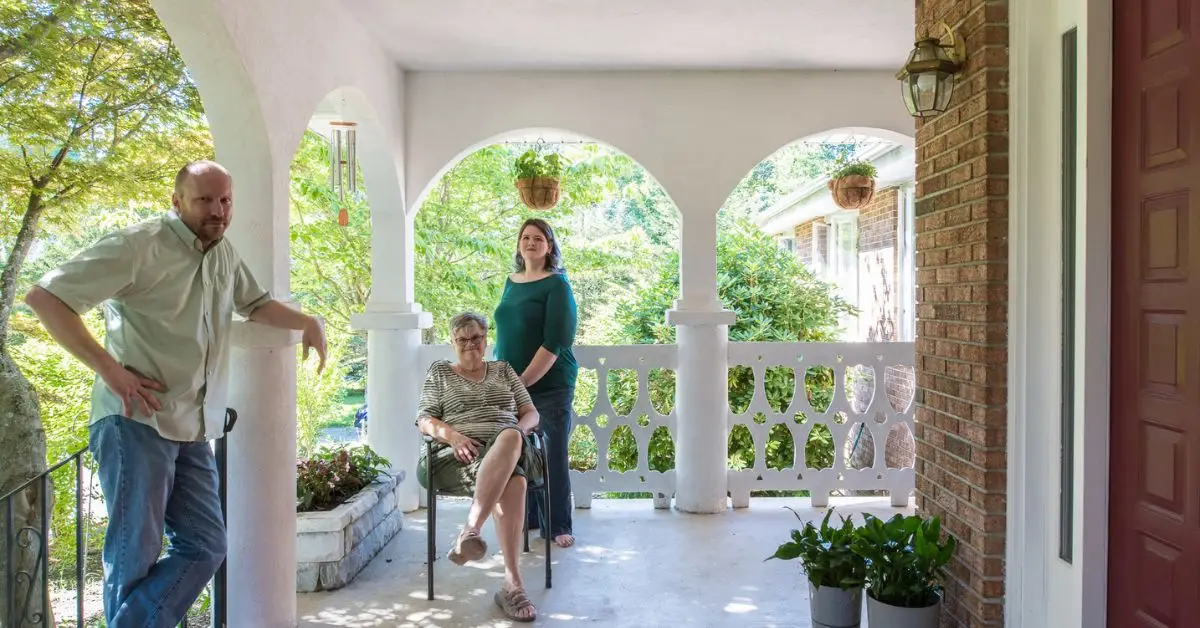Buying a House With Your Parents: 6 Truths No One Tells You
Buying a home with your parents sounds like a dream—or a disaster—depending on who you ask.
I’ve worked with enough families to know this setup isn’t just about money. It’s about trust, boundaries, expectations, and sometimes, buried family tension. But here’s the truth: with today’s housing prices, more people are teaming up with parents to finally buy something of their own. And it’s not always out of desperation. For some, it’s a smart financial move. For others, it’s about care, legacy, or simply making things work.
But let’s be honest: nobody talks about what it actually feels like. The things you didn’t expect. The tiny daily compromises. The silent wins. The awkward losses.
This piece isn’t just a dry list of pros and cons. It’s about what really happens—good, bad, and everything in between—when you share homeownership with the people who raised you.
Whether you’re planning to co-buy, inherit, or move into their house, you’ll want to read this first.
So, what are the 7 things you’ll love (and maybe hate) about this decision? Let’s get into it.
What “Buying a Home With Your Parents” Really Means
Before we get into the pros and cons, let’s get one thing straight: “buying a house with your parents” can mean very different things depending on your situation.

You might be thinking of a true co-ownership setup, where you and your parents are both on the mortgage, splitting payments and ownership. Or maybe you’re moving into their house, with plans to contribute and eventually inherit it. Some buyers even purchase the family home from their parents—either to help them retire or to keep it in the family.
Each of these scenarios sounds simple on paper. But they come with very different financial, legal, and emotional outcomes.
If you’re buying together, you’ll need to understand legal ownership structures like joint tenancy or tenancy-in-common, which impact inheritance and control.
If you’re planning to buy the house from your parents, there are major things to consider—like equity, taxes, and whether it still feels like “your” home.
And then there’s the emotional angle. Some parents want to stay involved in decisions, even after you’ve technically “bought” the home. And that changes things.
Most people think they’re just “buying with family,” but the type of arrangement makes a huge difference. Getting clear on what you’re actually entering into is key before you even run the numbers.
What You’ll Love About Buying a Home With Your Parents
This setup can come with some very real upsides—if you’re clear-eyed about it. Here’s what genuinely works in favor of shared ownership with your parents.
1. Lower Financial Pressure
Buying with parents often means splitting the mortgage, down payment, or even skipping rent entirely. For many first-time buyers, this is the only way into the market without drowning in debt or giving up quality of life.
In some cases, parents bring more equity, while you bring energy and income. It’s a trade-off that can make a long-term investment possible—without the financial isolation that usually comes with homeownership.
Financial relief is the #1 reason people enter this kind of arrangement, but few talk about how much pressure it actually removes when done right.
2. Better Mortgage Access
Two incomes, shared assets, and a strong credit profile (usually from the parents’ side) can significantly boost your mortgage options. Some banks even offer special multi-generational loan products, depending on the lender and region.
Better rates, higher approval chances, and access to stronger homes isn’t just about money—it’s about options.
3. Built-in Support System
If you’re sharing the space, there’s often built-in help: watching kids, running errands, handling maintenance. Many people—especially working parents—find this a lifesaver.

And emotionally? There’s comfort in having family around, especially during life transitions like having kids, illness, or job changes.
People underestimate how much small daily support affects long-term stability. It’s not just about money—it’s about how your home works day to day.
4. Faster Path to Ownership
Pooling resources can fast-track your journey from renting to owning. A report by the Daily Telegraph highlights how first-home buyers across Australia are turning to family co-buying strategies to beat the system.
Getting a foot on the property ladder sooner creates long-term financial leverage—and shared ownership might be the fastest way in. Students and recent grads are also exploring co-ownership with family to get ahead. If you’re in that stage, don’t miss this guide on what no one tells you about buying a home as a student.
5. Family Wealth Stays in the Family
Instead of paying rent to a landlord, your money is helping build equity—for you and your parents. And in many cases, this also becomes part of estate or legacy planning.
According to Faris Team, shared family ownership is on the rise in Canada for exactly this reason.
It’s not just about affording a home. It’s about passing something on. That changes the meaning of the purchase entirely.
6. Familiarity With the Property (if you’re moving into their home)
You know the creaky floorboards, the shortcut to the grocery store, and the neighbors. There’s less adjustment, fewer surprises, and usually, some emotional comfort.
And if you’re buying from your parents, it can also mean transparency—no one knows the house’s flaws better than them.
In a world of hidden mold and rushed inspections, that familiarity gives you a head start.
What You’ll Probably Hate About Buying a Home With Your Parents
Even when the intentions are good, living or co-owning with parents isn’t always smooth. These are the parts most people don’t talk about until they’re knee-deep in them.
1. Your Independence Takes a Hit
Whether it’s decisions about paint colors or how the kitchen gets used, expect to compromise. You may technically own the place, but it’s hard to feel like the final decision-maker when your parents are involved—especially if they’re financially contributing.
And even if you’re living apart but co-owning, you’ll still need alignment on maintenance, upgrades, refinancing, and future plans.
If you crave autonomy, shared ownership can feel like you’re constantly asking for permission in your own life.
2. Boundaries Can Blur Fast
From unannounced visits to disagreements over house guests, boundaries are one of the first things to get tested. If you’ve moved back into their home, it’s even trickier—many parents struggle to see you as an equal adult in a shared space.
Without crystal-clear expectations from day one, your daily life can become an emotional minefield.
3. You Inherit Their Design Choices (and Maybe Their Clutter)
If you’re moving into an existing family home, you’re likely dealing with outdated layouts, inherited furniture, and a long list of “you’ll get used to it.” Changing things can feel emotionally charged, especially if the house has sentimental value for your parents.
You want it to feel like your home, not just a well-decorated memory of theirs.
4. It Could Complicate Their Retirement or Healthcare
If your parents are older, your joint ownership could affect Medicaid eligibility, estate planning, or their ability to downsize later.

You’re not just managing real estate—you’re entering into a long-term financial and legal entanglement.
5. Exit Plans Are Messy
What happens if one of you wants to sell? Or if a parent passes away? Or if your life changes—marriage, job transfer, kids?
Without a legal agreement and future scenarios mapped out, you could end up stuck—or worse, in conflict.
No one thinks about the end when they’re excited to buy. But that’s exactly when you need to.
6. Family Drama Finds Its Way In
Sometimes, it’s not about the house—it’s about decades of family patterns that show up when you’re under the same roof or on the same title.
A viral story in People showed how even a well-meant arrangement led to emotional fallout when a partner didn’t feel like she belonged in a home that still felt like “his parents’.”
What looks logical on paper can unravel emotionally if the home never truly feels like it’s yours.
How to Make It Work (If You Still Want To)
If you’re still thinking of buying a home with your parents—good. Because done right, this setup can absolutely work. But it takes more than love and a down payment. Below are the guardrails you need to protect your relationship and your investment.
1. Start With a Legal Agreement (Not Just a Conversation)
Before anyone signs anything, sit down with a real estate attorney and draft a formal co-ownership agreement. This should cover:
- Who owns how much (and how that could change)
- What happens if someone wants to sell
- Who pays for what (repairs, taxes, improvements)
- How disputes will be resolved
This isn’t about trust. It’s about clarity.
As Investopedia explains, your ownership structure (joint tenancy vs. tenancy-in-common) has long-term legal and inheritance impacts. Choose wisely.
Too many people avoid the legal step to “keep things simple”—and end up in messy, expensive situations when life changes.
2. Define Boundaries Early—and Revisit Them Often
If you’re living together, agree in advance on things like:
- Shared vs. private spaces
- Rules for overnight guests or partners
- Chores and household responsibilities
- Who makes decisions on decor or renovations
If you’re not living together, boundaries are still important—especially around financial decisions or property access.
Boundaries aren’t just polite—they’re protection for both sides. Skipping them now leads to conflict later.
3. Plan for What Happens When Things Change
People move. People get married. Parents age. Life happens. Don’t assume everyone will want the same thing in five years.
Outline what happens if:
- One party wants to sell
- Someone loses a job
- A parent passes away
- A divorce or new partner enters the picture
These are tough conversations—but essential ones.
Reddit threads like this are full of regrets from people who didn’t think through the “exit.”
You’re not just buying a home—you’re creating a shared future. And that future needs contingency plans.
4. Treat It Like a Business Deal (Even If It’s Family)
Keep receipts. Put every agreement in writing. Set a schedule for regular check-ins—monthly or quarterly—to talk money, repairs, and shared decisions.
If you’re nervous about bringing up finances with your parents, that’s even more reason to make it formal.
Respecting the process protects the relationship. Families fall out when they assume everything will “just work itself out.”
5. Don’t Rush. Run the Numbers Twice.
Ask yourself:
- Can I afford this alone, if needed?
- What’s the resale plan if things don’t work out?
- Are we choosing this setup because it makes sense—or because it’s emotionally convenient?
Talk to a fee-only financial advisor or housing counselor before committing.
And if you’re buying from your parents, make sure the sale is fair market value and disclosed to other family members to avoid future tension, as discussed in The Mortgage Reports.
You’re not just solving today’s housing issue—you’re shaping your future financial health. Be slow. Be smart. Before you commit, make sure you’re not walking into one of the common traps. Avoid these 8 home buying and selling mistakes that too many people realize only when it’s too late.
When It’s Probably Not Worth It
Buying a home with your parents sounds like a smart shortcut—but it’s not always the right move. In fact, forcing it can cost you more than money. Here are signs you should pause (or walk away) from the idea.
1. You’re Doing It Out of Guilt or Pressure
If you’re saying yes just to avoid a fight, repay a favor, or because “they’ve done so much for me”—stop. That’s emotional leverage, not financial logic.
You should enter into shared homeownership because it’s a good plan—not because it feels like emotional repayment.
2. You Don’t Share the Same Vision
One wants a quiet retirement home. The other wants to Airbnb the basement. One wants to upgrade everything. The other wants to keep it “just like it was.”
If your long-term goals don’t align, you’re setting yourself up for constant conflict.
You’re not just buying a house—you’re buying into a shared future. Mismatched visions always catch up.
3. You Can’t Be Fully Honest About Finances
If you’re hiding debt, don’t trust how they manage money, or feel weird talking about bills—it’s a red flag.
Even small money misunderstandings (like who’s covering a plumber bill) can grow into resentment without total transparency.
Trust doesn’t mean silence. If you can’t talk numbers now, don’t expect it to get easier later.
4. You’re Not Ready to Prioritize the Relationship Over the Property
At some point, things will go wrong—a repair, a disagreement, a late payment. If you’re not prepared to navigate that without letting it damage the relationship, think hard.
Some relationships are too fragile to tie to a 30-year mortgage.
Your family bond should outlast your real estate deal. If this setup could break that, walk away.
5. You’re the Only One Taking the Risk
If the title is in your name but your parents are calling the shots…
If you’re co-signing the loan but have no equity…
If they’re contributing emotionally but not financially…
It’s not a partnership. It’s a liability.
Equal say needs equal skin in the game. Don’t take all the risk for a decision you don’t fully control.
Final Thoughts: Is Buying With Your Parents the Right Move for You?
This isn’t about whether it’s a good or bad idea in general—it’s about whether it makes sense for you. Your money, your lifestyle, your family dynamic.

If you’re aligned on goals, boundaries, and finances—and you’ve had the hard conversations up front—buying a home with your parents can be a win-win. You might save money, build equity faster, and strengthen your family support system.
But if you’re already navigating unspoken tension, financial imbalance, or unclear expectations, the property will only magnify those problems.
Here’s what I’d ask you to consider:
- Can you have a totally honest talk about money with your parents without it getting tense?
- Do you both agree on the purpose of the home—and what happens if one of you wants out?
- Are you ready to legally protect your interests, even if it feels awkward?
If the answer to those is “yes,” move forward—but slowly, and with professional help.
If not, you might be better off renting for a bit longer, or exploring alternative support structures (like help with a down payment instead of co-ownership). If you’re leaning toward buying something brand new instead, here are 10 must-know tips before buying a new construction home that can save you serious time, money, and regret.
Your next step: Before you call the realtor, call a real estate attorney. Sit down with a financial planner. Make sure you’re building a future, not just solving a short-term problem.
Would you ever buy a home with your parents? Why or why not? I’d love to hear your thoughts—drop them in the comments or share your story.
Want more home-buying tips and real-world advice? Visit Build Like New for smart guides, tools, and strategies that actually help.
Disclaimer: This article is for informational purposes only and does not constitute financial, legal, or real estate advice. Always consult with a licensed professional before making any property or investment decisions.


